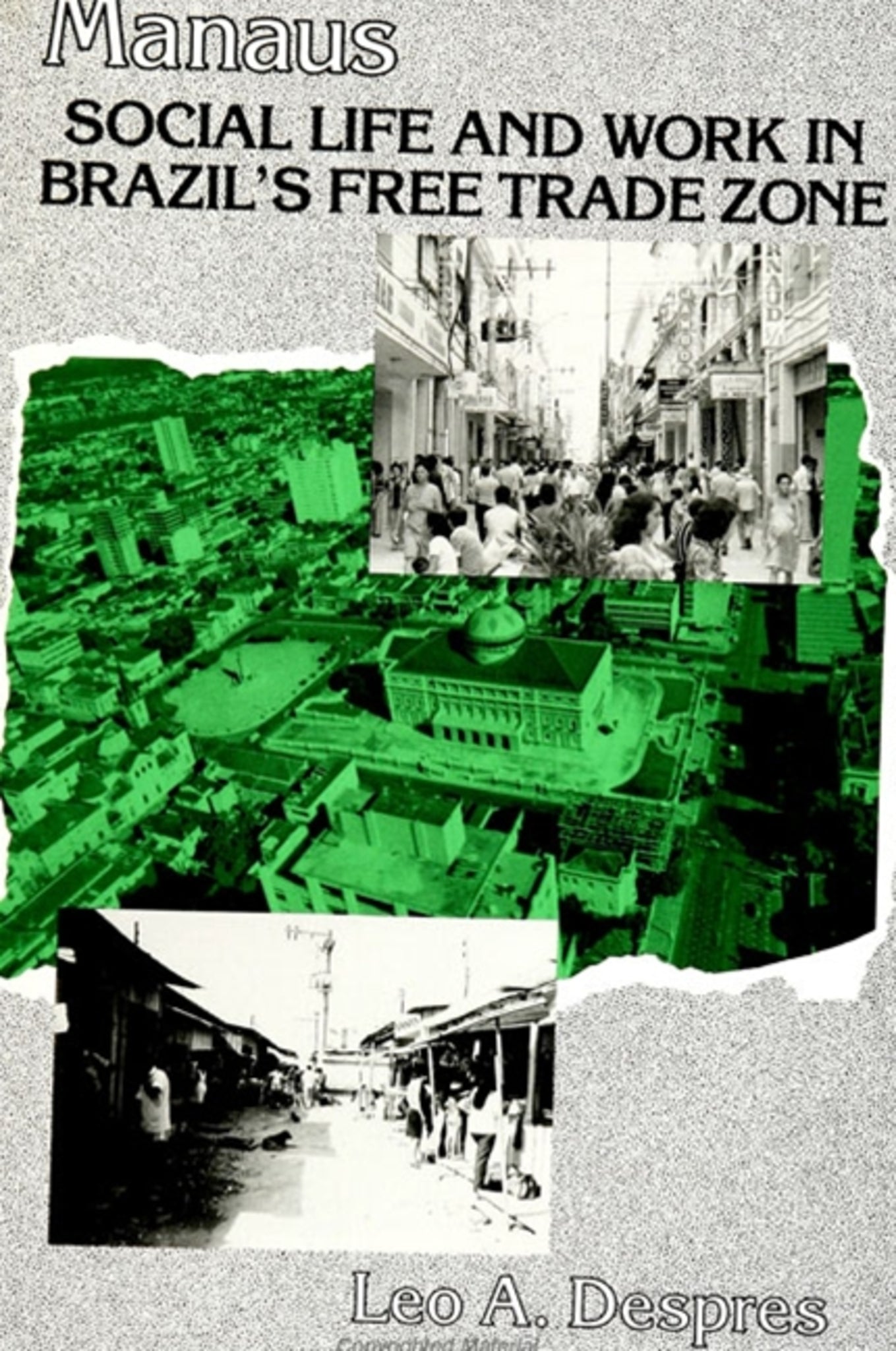We're sorry. An error has occurred
Please cancel or retry.
Manaus

Some error occured while loading the Quick View. Please close the Quick View and try reloading the page.
Couldn't load pickup availability
- Format:
-
03 July 1991

Manaus, an urban-industrial center in the Amazon, serves in this book as a microcosmic case of dependent capitalist development in Latin America. With the creation of a Free Trade Zone and a strong program of fiscal incentives in 1967, the Brazilian government initiated a large-scale project designed to establish an industrial pole in Manaus. This book is an anthropological study of the impact of this type of development on the economic, social, and cultural life of working class families.
This study underscores the work relationships between different economic sectors, the economy of households, the organization of domestic groups and, ultimately, the social engagement of working class families in the life of their neighborhoods, the city, and the larger Brazilian society. Despres examines the theoretical value of modernization, dependency, and modes of production approaches for understanding the social formation of working class populations. In discussing capitalist development in Brazil, the author grapples with the problems of urbanization, industrialization, and economic development in Latin America generally.


"It is very well-written and makes a great contribution to the literature. The bibliography is excellent. There is nothing comparable in Portuguese or English, or on any other tropical forest area in the world that is industrializing." — Paul Aspelin, Cleveland State University
List of Tables
List of Acronyms
Acknowledgments
Introduction
Substantive Considerations
Theoretical Issues
Outline of Chapters
1. Cultural Formations and the Zona Franca
The Caboclo Formation
The Urban Formation
The Zona Franca
Migration and Urban Growth
2. The Labor Process: Firms, Enterprises, and Economic Sectors
Hegemonic Industries
Peripheral Industries
The Commercial and Public Sectors
The Informal Sector
3. Economic Sectors and the Social Differentiation of Workers
The Social Selectivity of Economic Sectors
Status Inequalities
Intergenerational Patterns of Mobility
As Workers View Their Employment
Living Work and Economic Sectors
4. The Economy of Households
Household Composition and Income
Single and Multiple Income Households
Food Consumption
Consumer Durables
5. Domestic Organization and Household Economy
Households and Family Units
Status Identities and the Economic Division of Labor
The Domain of Domestic Relations
6. Manaus in Transition: Bairros and Vizinhanças
Material Dimensions of Urbanization
Institutional Changes and Popular Culture
Bairros and Vizinhanças
7. Manaus: A Theoretical View of a Microcosm
Modes of Production in the Amazon
The Marginalization of Producers
The Marginalization of Consumers
The Empirical Construction of Marginality
Global Processes, Microcontexts, and Patterns of Change
Notes
Bibliography
Index



